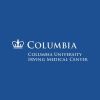Understanding Why Heart Disease is More Common in Older Adults
- How Aging Affects the Heart
- Risk Factors for Heart Disease in Older Adults
- The Role of Lifestyle in Heart Health
- Preventing Heart Disease as You Age
- A Personal Story: My Experience with Heart Health
1. How Aging Affects the Heart
As we age, our bodies undergo various changes, some of which can directly impact our cardiovascular health. The heart, like other organs, faces additional strain as we grow older. This strain is a significant reason why heart disease is more common in older adults. The natural aging process causes the heart to become less efficient, and various risk factors start to accumulate over time, increasing the likelihood of cardiovascular issues.
The heart’s ability to pump blood effectively decreases with age due to the thickening of heart muscles, a condition known as left ventricular hypertrophy. This condition can make it harder for the heart to fill with blood, causing the heart to work harder to maintain proper circulation. Additionally, blood vessels tend to lose their elasticity over time, which can lead to increased blood pressure and a greater risk of artery blockages, which are key contributors to heart disease.

1.1 The Impact of Blood Pressure and Arterial Stiffness
As we age, our blood vessels naturally become stiffer. This leads to higher blood pressure, which in turn puts extra pressure on the heart. High blood pressure, or hypertension, is one of the leading causes of heart disease in older adults. The longer high blood pressure is left untreated, the more likely it is to cause serious health problems such as heart attacks or strokes.
Atlanta Heart Specialists
atlanta heart specialists
4375 Johns Creek Pkwy #350, Suwanee, GA 30024, USA

1.2 Reduced Heart Function Over Time
With age, the efficiency of the heart’s pumping action declines. This is partly due to a natural decrease in the heart’s elasticity. As a result, older adults may experience reduced stamina, fatigue, or shortness of breath during physical activities. These symptoms often signify underlying cardiovascular issues that can lead to more serious conditions, such as heart failure or arrhythmias.
2. Risk Factors for Heart Disease in Older Adults
Several risk factors contribute to heart disease, and these factors tend to accumulate as people age. Many of these risk factors can be managed with proper treatment and lifestyle changes, but as we get older, they become more difficult to control. Understanding these risk factors is key to preventing heart disease.
2.1 High Cholesterol
Cholesterol levels tend to rise as we age, especially if we lead a diet high in saturated fats or have a sedentary lifestyle. High cholesterol contributes to the buildup of plaque in the arteries, increasing the risk of heart attacks and strokes. It’s essential for older adults to monitor their cholesterol levels regularly and work with their healthcare provider to manage them effectively.
2.2 Diabetes
Diabetes is another prevalent risk factor that increases with age. When diabetes is poorly managed, it can damage blood vessels and the heart over time, significantly increasing the risk of cardiovascular diseases. Many older adults suffer from both diabetes and high blood pressure, a combination that can be particularly damaging to the heart.
2.3 Obesity
Obesity is a significant contributor to heart disease, and as we age, maintaining a healthy weight becomes more challenging. Excess weight increases the strain on the heart and can lead to high blood pressure, high cholesterol, and diabetes—all of which are risk factors for heart disease. Maintaining a healthy diet and exercise regimen is crucial in mitigating these risks.
3. The Role of Lifestyle in Heart Health
While age is a significant factor in the development of heart disease, lifestyle choices also play a critical role. Smoking, poor diet, and lack of exercise are common habits that exacerbate heart disease risks in older adults. However, adopting healthier habits can significantly reduce the likelihood of developing heart-related issues, regardless of age.
3.1 The Importance of Diet and Nutrition
A heart-healthy diet is vital, especially as we age. Foods rich in fiber, fruits, vegetables, and lean proteins help lower cholesterol and blood pressure. Additionally, reducing salt intake and avoiding processed foods can have a profound impact on heart health. As we age, our metabolism slows, so it becomes even more important to make nutritious food choices to prevent excess weight gain and reduce strain on the heart.
3.2 Regular Exercise
Exercise is one of the most effective ways to improve cardiovascular health, even in older adults. Regular physical activity can help reduce blood pressure, improve cholesterol levels, and maintain a healthy weight. Even moderate activities, such as walking, swimming, or yoga, can have a positive impact on heart health, improving circulation and strengthening the heart muscle.
3.3 Avoiding Smoking and Excessive Alcohol
Smoking is a major contributor to heart disease, and its effects are amplified with age. It damages blood vessels and raises the risk of developing arterial plaque. Likewise, excessive alcohol consumption can increase blood pressure and lead to arrhythmias. Older adults who quit smoking and limit alcohol intake significantly lower their risk of developing heart disease.
4. Preventing Heart Disease as You Age
Preventing heart disease is possible at any age, and it’s never too late to start making changes. The earlier you adopt heart-healthy habits, the more effectively you can reduce your risk of cardiovascular issues. For older adults, taking proactive steps to monitor and manage risk factors can go a long way in preventing heart disease.
4.1 Regular Health Screenings
Regular health checkups are essential for detecting heart disease early. Older adults should have regular screenings for blood pressure, cholesterol levels, blood sugar, and body mass index (BMI). These screenings provide valuable insights into your cardiovascular health and can help your doctor recommend lifestyle changes or treatments that can prevent further complications.
4.2 Medication and Treatment
If you have underlying conditions like high blood pressure, high cholesterol, or diabetes, it’s important to follow your doctor’s advice regarding medications. These medications can help keep your heart healthy and reduce the risk of heart disease, especially as you age. Always discuss any side effects or concerns with your healthcare provider to ensure your treatment plan is right for you.
5. A Personal Story: My Experience with Heart Health
At 65, I was diagnosed with high blood pressure and high cholesterol, both of which run in my family. I knew that as I aged, I needed to be extra vigilant about my heart health. I started taking medication as prescribed by my doctor, made significant changes to my diet, and incorporated daily walks into my routine. After a year, my blood pressure and cholesterol levels were significantly improved, and I felt healthier than I had in years. This experience taught me that heart disease doesn’t have to be inevitable as we age—it’s all about taking control of our health through regular checkups, medication, and lifestyle changes.
If you're concerned about your heart health or want to learn more about managing heart disease as you age, it’s a good idea to consult with a heart specialist. Visiting your local healthcare provider or checking out resources like our platform can help you find the right professionals to guide you through the prevention and treatment process.





















Deborah Heart and Lung Center
deborah heart and lung center
200 Trenton Rd, Browns Mills, NJ 08015, USA